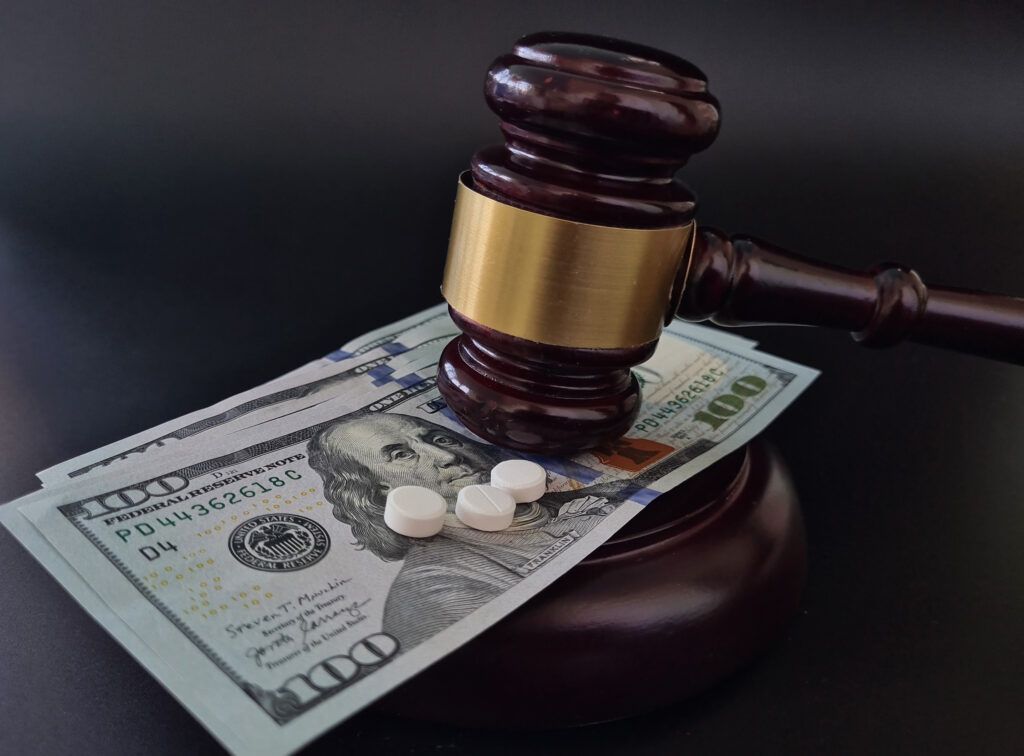What Happens When You Are Charged with Retail Theft in PA?
Regardless of whether you have been arrested and charged with retail theft for the first time or you are facing a successive charge, the penalties for conviction in Pennsylvania can be harsh. In addition to jail or prison time and fines, a conviction will leave you with a criminal record, which can make it incredibly difficult to secure employment, education, or housing.
In many cases, an arrest for retail theft may simply be the result of a misunderstanding – you may have forgotten to pay for an item or were under the mistaken belief that you had paid for an item. Even accidentally walking out of a store with a relatively insignificant item can leave you facing the possibility of jail time and a fine of hundreds of dollars. That is why it’s important that you understand the charges you are facing, the potential consequences of a conviction, and your rights and options for facing your charges. In addition, having an experienced criminal defense attorney to represent your rights and interests can greatly improve the chances of winning your case or getting the best possible outcome to your charges. Even with strong evidence against you, it may be possible to reduce the severity of your charges or sentence through negotiation.
Related: What should I do when I think charges might be filed against me?
What is Retail Theft?
Under Pennsylvania law, retail theft, also known as shoplifting, can involve conduct such as:
- Walking out of a store with an item without paying for it
- Transferring possession of merchandise without paying full value
- Using merchandise without paying the full value
- Altering price tags to pay less than full value
- Removing or destroying anti-theft tags and devices with the intention of depriving a store of the full value of an item for sale
- Ringing up an item at less than its full value
- Putting an item into a different container with the intention of paying less than its full value
Pennsylvania’s Retail Theft Laws and Penalties for Conviction
If a store owner or manager has probable cause to believe you have stolen items from the store, they can stop you and hold you until the police arrive. If you are arrested and charged with retail theft and you are 16 years or older, you will be fingerprinted by the police.
If you are tried and convicted (in the adult criminal justice system) for retail theft, you may face serious penalties, including:
- Item value under $150, first offense: Up to 90 days in jail and a $300 fine
- Item value under $150, second offense: Up to two years in jail and a $5,000 fine
- Item value between $150 and $2000, first or second offense: Up to five years in prison and a $10,000 fine
- Third or subsequent offense, any item value: Up to seven years in prison and a $15,000 fine
- Item value over $2000, first or second offense, or theft of a motor vehicle or firearm of any value: Up to seven years in prison and a $15,000
Contact an Experienced Erie Criminal Defense Lawyer About Your Retail Theft Charges in Pennsylvania
Were you arrested or charged with retail theft in Pennsylvania? The consequences of a conviction could be severe, leaving you with a permanent criminal record and possibly even sending you to jail. That is why you need to speak with a qualified criminal defense attorney as soon as possible about your case. The attorneys at Purchase, George & Murphey, P.C. have successfully represented clients charged with retail theft in Millcreek, Harborcreek, Fairview, Meadville, and throughout Pennsylvania. Call (814) 833-7100 or fill out the online contact form to schedule a consultation with a member of our legal team. We have an office conveniently located at 2525 W. 26th St., Erie, PA 16506, as well as offices located in Meadville and North East.
The articles on this blog are for informative purposes only and are no substitute for legal advice or an attorney-client relationship. If you are seeking legal advice, please contact our law firm directly.
Disorderly conduct consists of any improper behavior such as fighting, threats of violence, or creating a dangerous atmosphere.














